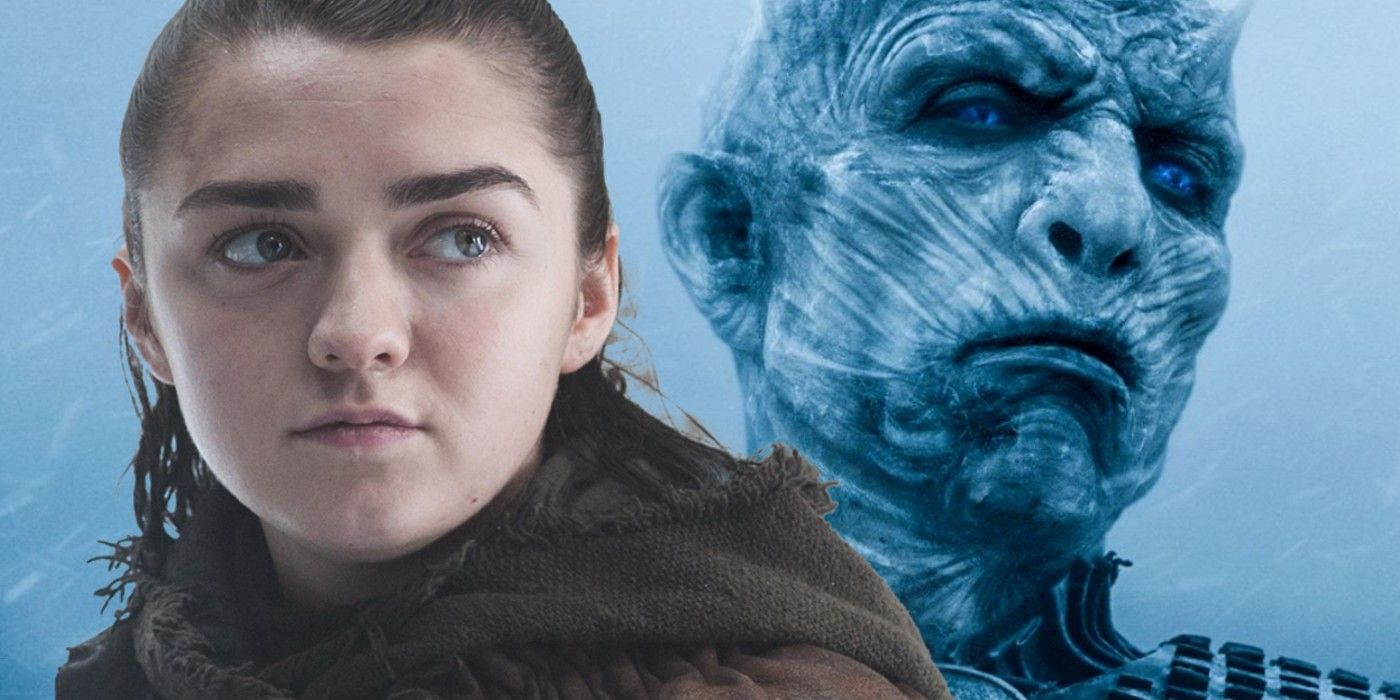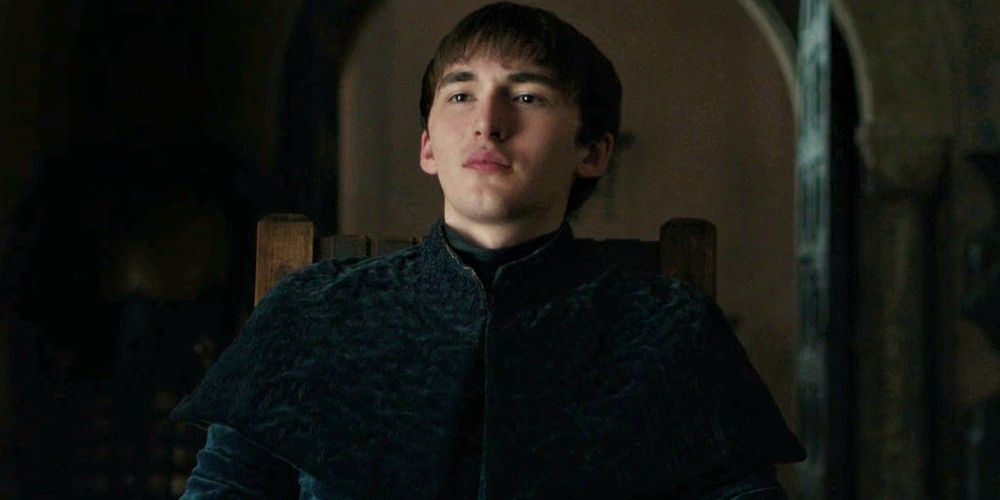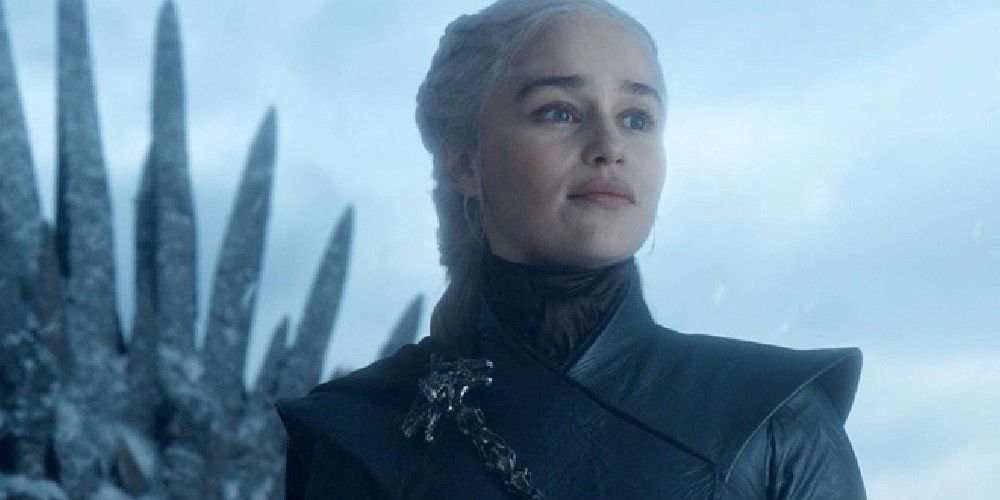Whether it be Daenerys Targaryen’s fall from grace or the infamous bad ending, Game of Thrones made many controversial choices in its 8 season run.

After dominating television and the pop culture zeitgeist for most of the 2010s, Game of Thrones ended in a disappointing way. HBO’s adaptation of George R. R. Martin’s A Song of Ice and Fire concluded with one of the most historically divisive final seasons ever aired on television. However, this wasn’t the only controversial choice in Game of Thrones.
RELATED:10 Game Of Thrones Book Theories Better Than Season 8
The ending was a result of controversial creative choices that either strayed too far from what the source material intended, or were misguided decisions made during production. Game of Thrones could make a comeback in the future, but it will be a long time before it escapes the shadow and impact of the controversial choices it made.
10House Of The Dragon’s Mere Existence Is Infuriating To Former Fans
In light of Season 8’s countless shortcomings and notoriety, many jaded viewers questioned why House of the Dragon was even made. As far as former Game of Thrones fans were concerned, House of the Dragon was a continuation nobody asked for. The very thought of revisiting Westeros angered them.
To its credit, the Game of Thrones prequel scored great ratings and high praise on its own merits. These, however, were not enough to win back all of Game of Thrones’ viewers. Most of Game of Thrones’ disillusioned viewers just ignore House of the Dragon, while those still bitter about Season 8 felt like its existence reopened old wounds.
9Season 8’s Short Episode Count And Series Finale Were Red Flags
When Season 8 was announced to be only six episodes long and that it would conclude the series, fans were initially unconcerned. In hindsight, this was a major red flag. Game of Thrones needed more episodes and seasons to wrap up every character’s personal journey, along with all of Westeros’ political intrigue.
It was later revealed that showrunners David Benioff and D.B. Weiss actually rejected HBO’s offer to give them as many seasons as they wanted. Not helping matters was the rumor that they wanted to hurriedly conclude Game of Thrones so they could move on to a potential (and now-scrapped) Star Wars project.
8Season 5’s Divergence From The Books Hurt The Series
Like any other adaptation of a book, Game of Thrones made some significant changes to its source material’s story. That said, Game of Thrones took a life of its own in Season 5. From this point, the series stopped following the books and told its own story. This was one of the series’ biggest and costliest mistakes.
RELATED:10 TV Characters Whose Fates Remain Unknown
After breaking from canon, Game of Thrones noticeably ramped up its cheer-worthy fanservice. The show also dropped its meticulous pacing and characterizations to rush toward the endgame. Adaptational changes are necessary, but Game of Thrones should’ve deferred more to the books and George R. R. Martin’s vision.
7The Mistreatment And Exclusion Of Dorne Angered Readers
Despite its reputation, Dorne was mighty in name only. Dorne barely factored in the battle for Westeros’ control, and House Martell was one of the weakest families out there. By Season 8, almost everyone associated with Dorne was dead or worse. This was not the case in the books, which made Dorne a feared powerhouse.
Game of Thrones depicted Dorne and the Martells as incompetent and weak. Readers were understandably infuriated by this disservice, while newcomers were equally disappointed. There’s no official reason for this controversial adaptational change, but it’s hard not to infer that the showrunners simply had no interest in Dorne.
6Magic Was Downplayed For Some Reason
In the books, magic was a major force in Westeros. Many characters used or encountered magic, while the gods played an active if unseen role. Magic also existed in Game of Thrones, but it was pushed to the background. A good example of this is Euron Greyjoy, who was a powerful mage in the books but an ordinary pirate in the series.
RELATED:10 Best Personality Traits Of House Targaryen
Besides affecting some characterizations, this lack of magic missed the books’ point. A Song of Ice and Fire deconstructed dark fantasies by showing that magic would only worsen a feudal society. In Game of Thrones, magic was a handy plot device that gave some characters an upper hand, or was only there to justify fantasy creatures’ existence.
5Petyr Baelish’s Death Felt Unsatisfying To Some
Littlefinger wasn’t just Game of Thrones’ most cunning character, but one of the most infamously manipulative villains in television history as well. Littlefinger spent most of the series pulling people’s strings and scheming his way into power. Ironically, Sansa Stark used Littlefinger’s methods to expose and execute him.
Even though fans agreed that Littlefinger deserved to die, his death was more divisive than expected. Some viewers felt that Baelish’s pathetic final moments were the perfect and most ironic way for him to go. Conversely, others felt that he was outsmarted and defeated too easily by characters who were arguably beneath his level.
4Bran Stark Becoming King Was Hard To Take Seriously
Game of Thrones ended by crowning Bran as Westeros’ next king. Instead of feeling good for Bran, audiences either rallied against or mocked this ending. Besides fans feeling that there were better candidates for the Iron Throne, Bran didn’t do anything throughout the series to prove that he would be a good ruler.
At best, Bran becoming king because he had “a good story” was the final punchline in Game of Thrones’ unintentionally hilarious ending. Bran’s coronation was undeserved because he was rewarded for being apolitical and unambitious. To this day, Bran’s final victory is the subject of heated criticism.
3Arya Stark Stole The Show For All The Wrong Reasons
It could be said that Arya was a victim of her popularity. After becoming Game of Thrones’ breakout character thanks to Maisie Williams’ amazing performance, Arya gradually became a badass but one-dimensional action hero. This culminated with Arya practically stealing Jon Snow’s destiny when she killed the Night King.
Most audiences didn’t mind this, since they loved seeing Arya deliver satisfying kills. Case in point, the extermination of House Frey. On the other hand, more critical viewers didn’t like how Arya’s original nuance was lost. Instead of deconstructing the warrior princess through Arya, Game of Thrones glorified the flat archetype.
2Sansa Stark’s Path To Maturity Lacked Respect And Tact
One of Game of Thrones’ most consistent criticisms was its questionable depiction and handling of women. Sansa is almost always brought up as this problem’s most egregious manifestation. In brief, Sansa was the typical spoiled princess who matured into another cruel ruler after surviving near-death experiences and assaults.
RELATED:10 Times Arya Stark Was Game Of Thrones’ Real Main Character
Sansa notably lost her previous compassion and wits in favor of stereotypically tough behavior. It also didn’t help that Sansa was written to think that femininity was weak and that her trauma was needed or even deserved. To more critical viewers, it was clear that the writers didn’t understand Sansa, or didn’t want to.
1Daenerys Targaryen’s Villainous Turn Was Legendarily Bad Writing
Daenerys becoming evil was the most controversial moment in both Game of Thrones and recent pop culture history. She ended her arc as a naive but heroic messianic figure by becoming a tyrant. Daenerys being another Mad King wasn’t an inherently bad or wrong idea, but it didn’t fit her characterization.
Since Game of Thrones went to great efforts to make audiences sympathize with and even root for Daenerys, many felt they were led on and deceived by Season 8’s conclusion. Daenerys’ fall from grace became a permanent mark against Game of Thrones’ credibility, and it will live in infamy forever.












